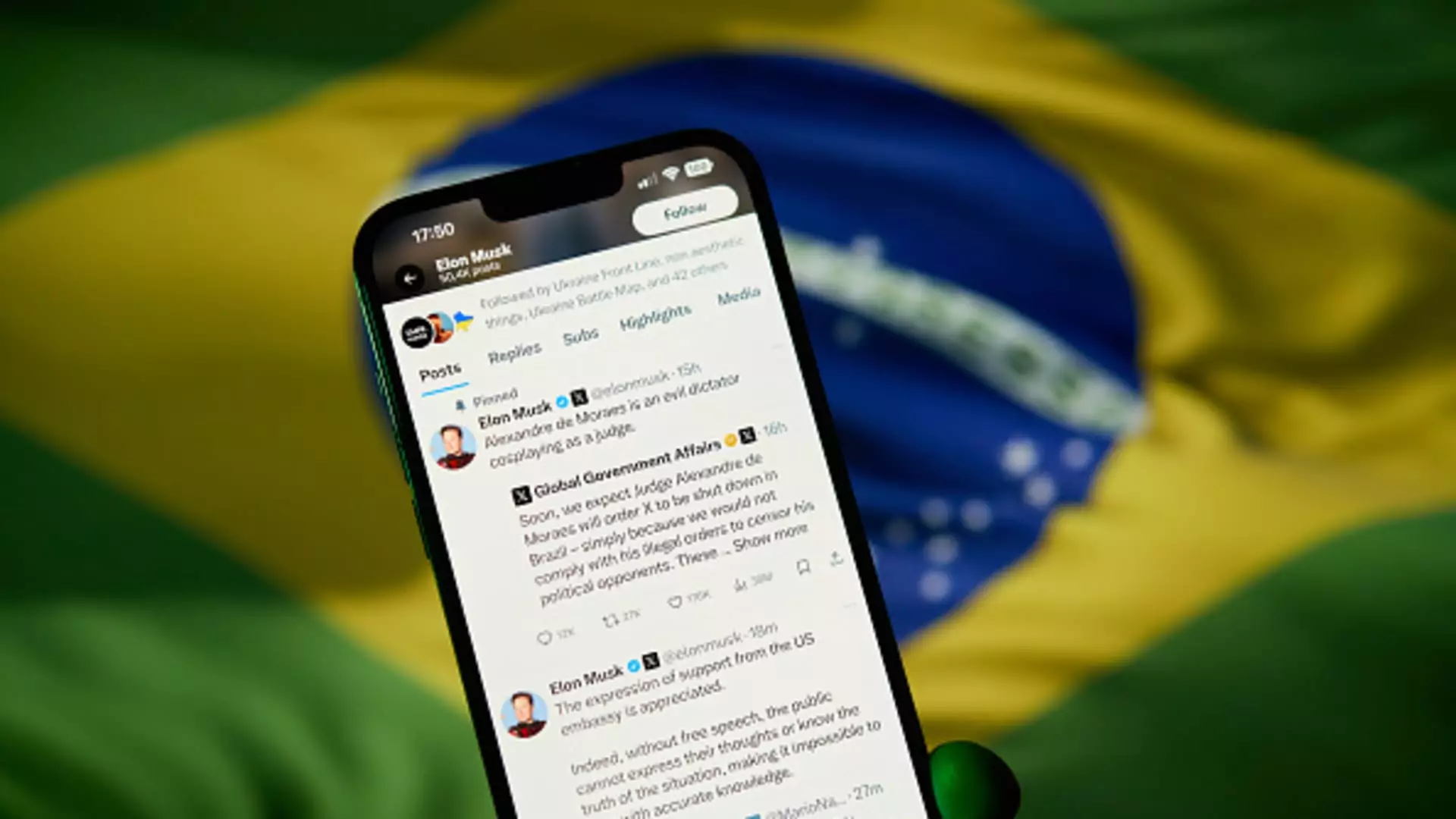Brazil’s federal supreme court recently made a unanimous decision to uphold orders suspending the use of Elon Musk’s social network X nationwide. This decision came after Justice Alexandre de Moraes issued suspension orders, warning Musk and X to appoint a legal representative in Brazil or face penalties. The court also froze the financial assets of Starlink, another Musk-led business, to ensure compliance with the court orders. Despite the court’s actions, X continued to defy requests to take down content deemed to be in violation of Brazil’s laws on political misinformation and hate speech online. This led to the suspension of X in Brazil, making the app and website mostly inaccessible to users in the country.
Elon Musk and his companies have strongly opposed the court’s actions, claiming that they were illegal and issued without due process. Musk has been vocal in his criticism of Justice de Moraes, calling him a “criminal” and making threats of reciprocal action if the seized property is not returned. Additionally, Musk escalated his rhetoric by calling for an end to U.S. foreign aid to Brazil and threatened reciprocal confiscation of assets from those who support the current regime in Brazil. This aggressive stance has further fueled the ongoing legal battle between X and the Brazilian government.
Public Reaction and Impact
The suspension of X in Brazil has sparked a debate among users and politicians regarding the legitimacy of the ban. Many Brazilians have expressed difficulty and doubts in navigating other social media platforms in the absence of X. However, some social media users in Brazil have started migrating to other networks, such as Bluesky, which reported a surge in user activity from Brazil. This shift in user behavior highlights the impact of the suspension on the country’s online population.
Elon Musk has often portrayed himself as a proponent of free speech, but his track record in managing content on X raises questions about his commitment to this ideal. While Musk has resisted orders to remove content in Brazil and Australia, X has censored content critical of ruling parties in Turkey and India. This inconsistency in content moderation practices has drawn criticism and added complexity to the ongoing legal battle in Brazil.
The controversy surrounding the suspension of X in Brazil reflects a larger debate around freedom of speech, content moderation, and legal responsibilities in the digital age. The clash between Elon Musk’s social network and the Brazilian government highlights the challenges of regulating online platforms and balancing different interests in a complex and interconnected world. The outcome of this legal battle will likely have far-reaching implications for online freedom and the power dynamics between tech giants and national governments.

